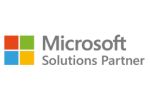So let’s take a look at the 5 reasons why you should start using Power BI.
Access and storage of vast amounts of data
Compared to Excel, Microsoft Power BI has much better data compression capabilities. This allows you to open and analyse huge amounts of information that Excel would rather have a problem with. Most computers have difficulty opening a .csv file with this program, which weighs over 300 MB. Power BI in this field performs much better.
Integration with various cloud services
Power BI was created to integrate Microsoft technologies, such as Excel files and SQL databases. However, as it is a cloud-based service, Power BI can also collect data from many other sources such as SAP, Google Analytics, Zendesk, MailChimp, Facebook and many others. Thanks to quick access to more data you will save a lot of work time.
Power BI is built on SSAS ground
SSAS is a tool built to manage data warehouses. Its author is also Microsoft, which shows that the company founded by Bill Gates has experience in data analysis. Power BI system was created on the basis of the experience of SSAS experts, which is a guarantee of the quality of this product.
Greater safety
Power BI uses the active directory to manage access control. This allows you to set security levels and be able to grant or deny access to even specific parts of the report. This in itself creates an additional layer of security for all data. Instead of creating several reports for multiple team members, it is enough to create one and specify the scope of access.
Faster and easier to identify trends
Power BI has built-in features that allow you to browse vast amounts of data in a short time. The data itself can be viewed in terms of different attributes. In addition, the user has at his disposal forecasting functions, which are based on built-in forecasting models. Power BI analyses your data and selects the best algorithm for forecasting.
Summary
Microsoft Power Bi is a tool that takes business analytics to a higher level. After mastering it, you don’t have to rely on IT staff to collect, transform and analyse data. Thanks to the wide range of built-in functions and data visualization capabilities, business users can perform most of these tasks on their own.


